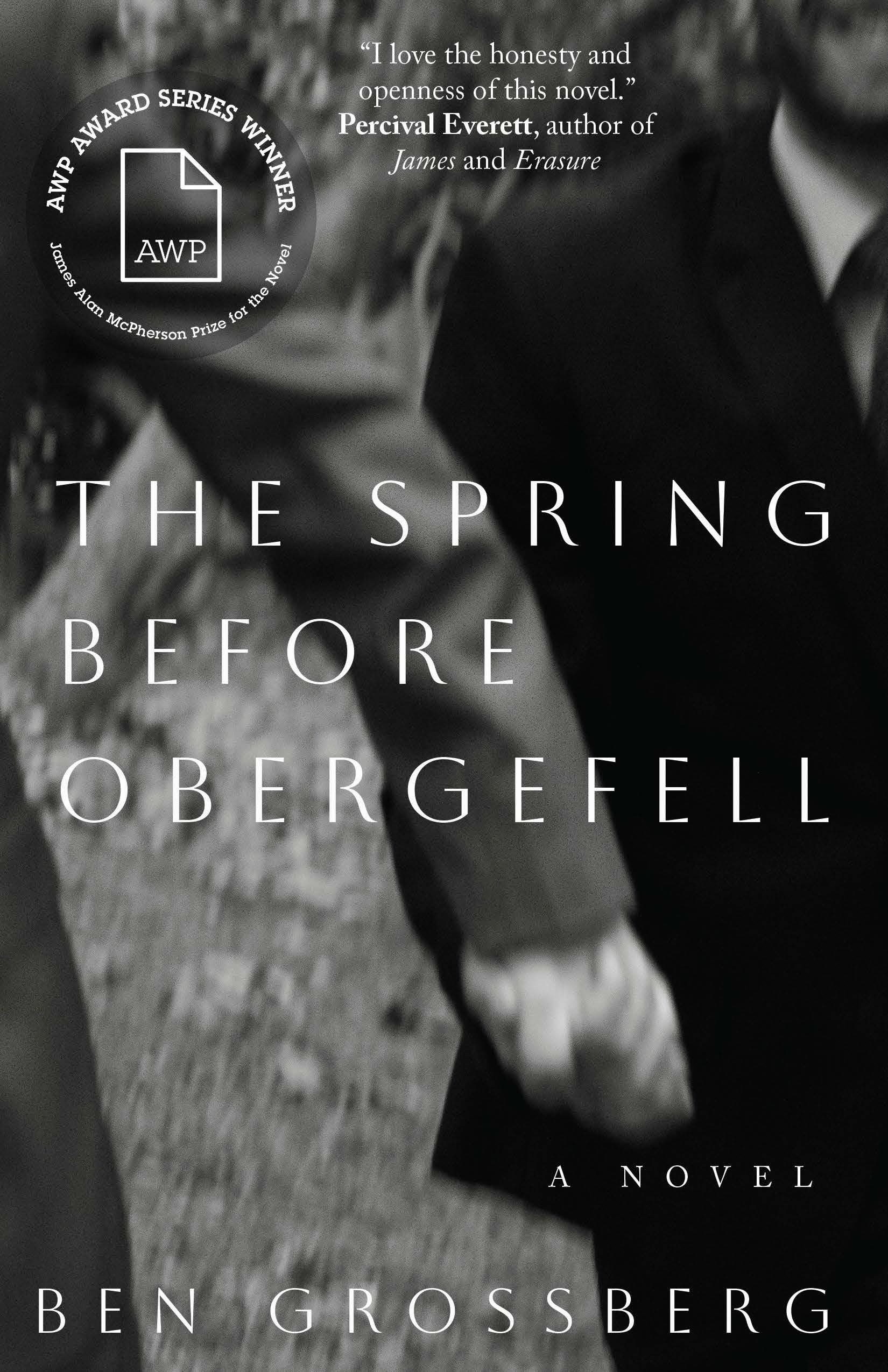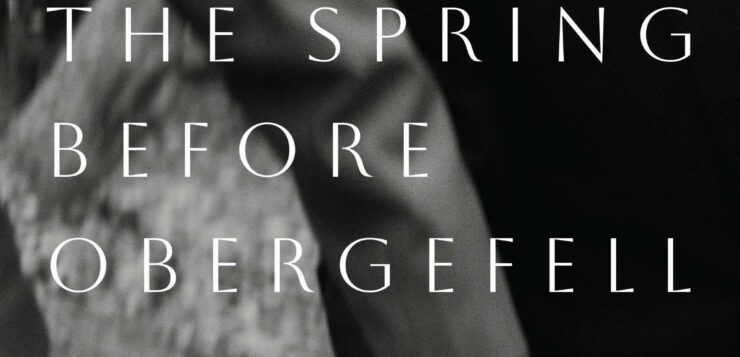
THE SPRING BEFORE OBERGEFELL: A Novel
by Ben Grossberg
University of Nebraska Press, 244 pages, $21.95
THE SPRING before Obergefell, poet Ben Grossberg’s debut novel, takes place in the months before the Supreme Court’s landmark decision in Obergefell v. Hodges, which legalized same-sex marriage. This 2015 ruling will have a special resonance for the novel’s protagonist, Mike Breck, a lonely, middle-aged gay man living in small-town America.
Mike, who’s pushing fifty, scrapes together a modest living through part-time work at Lowe’s, adjunct teaching at a community college (housed in a former mall), and handyman jobs. He shares his fixer-upper home near Columbus, Ohio, with his widowed father, an eighty-year-old “NRA Republican” still mourning his late wife, who died a few years earlier. To avoid arguing, father and son retreat to their respective rooms and devices—his father blaring Fox News, Mike scrolling the gay dating app Scruff.
When a mustachioed man accidentally bangs his shopping cart into Mike’s car in a parking lot, something in Mike is jolted awake. He is immediately attracted to “blue-collar sexy” Dave, but Dave’s reserved nature leaves Mike uncertain whether the attraction is mutual. He isn’t even sure if Dave is gay. As Mike draws Dave out of his shell, he comes to realize that he wants something from him other than just sex. Is Dave capable of more? Is Mike? The novel explores Mike’s attempts to expand his limiting beliefs of what life has in store for him.
Mike’s process of self-discovery touches on the emotional scars of the AIDS epidemic that shaped his fundamental perspective on what’s possible in same-sex relationships. He describes himself, melodramatically, as “misshapen by a disease that people get vaccinated for nowadays. … But it’s not my body that’s twisted. It’s my head, my heart.”
Grossberg’s novel excels in portraying the banality of small-town life and the fractured focus of the digital age. Mike scrolls, texts, and half-watches TV simultaneously, chasing connections with people whose chiseled body parts catch his eye, even as he ignores people in the same room—including his father. While he frequently behaves like an awkward adolescent, this is very much a novel about midlife, with the usual groans about an aging body’s aches and pains and poignant passages about lost time. Reflecting on his odd-job lifestyle, Mike observes: “But it’s a different thing, doing that kind of work when you’re young … it felt like I was playing at it, like I was killing time before the great stuff of my life began.”
As an admirer of Grossberg’s poetry, I was struck by the difference in tone of his prose. Rather than crafting scenes that bring the central issues to light, he gives us a blow-by-blow account of everything Mike does at any given moment with a deposition-like matter-of-factness. While the effect contributes to the feeling that life, for Mike, is happening in real time, it makes for long stretches of dull reading.
What struck me most about this book was the absence of wonder in Mike’s world. Never does he look around him and ponder things larger than himself. Grossberg effectively captures Mike’s intense focus on his own thoughts and feelings, but this self-absorption isolates him not only from the other characters but also from the reader. Every time he had sex in his room, I wondered if he was worried about what his dad might hear. Was he? There’s potential for comedy in this, and I wish Grossberg had leaned into the humor more. Instead, he keeps the novel’s gay gaze focused downward and inward, on damaged people in unlovely places who’ve been primed by American culture to hope for little and to expect even less—wedding bells included.
_______________________________________________________






